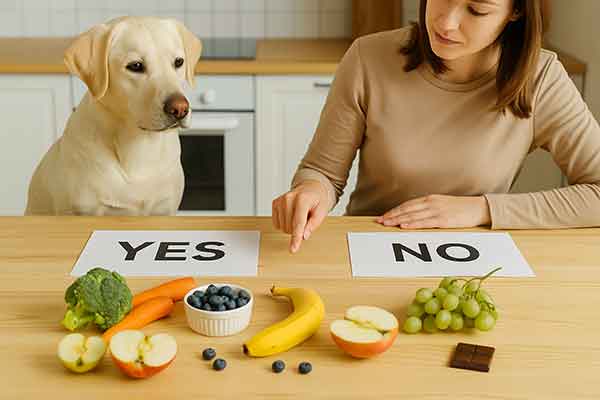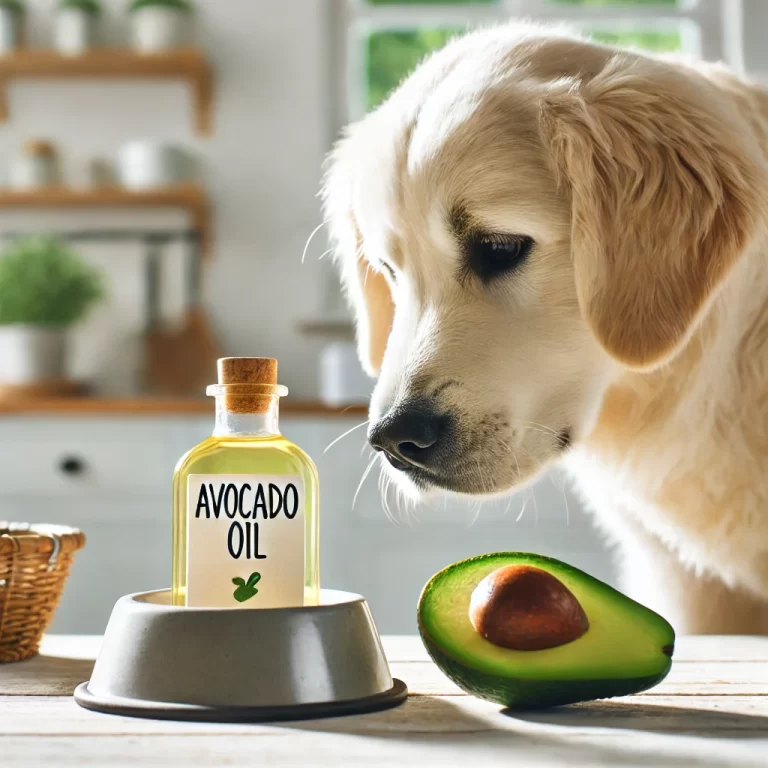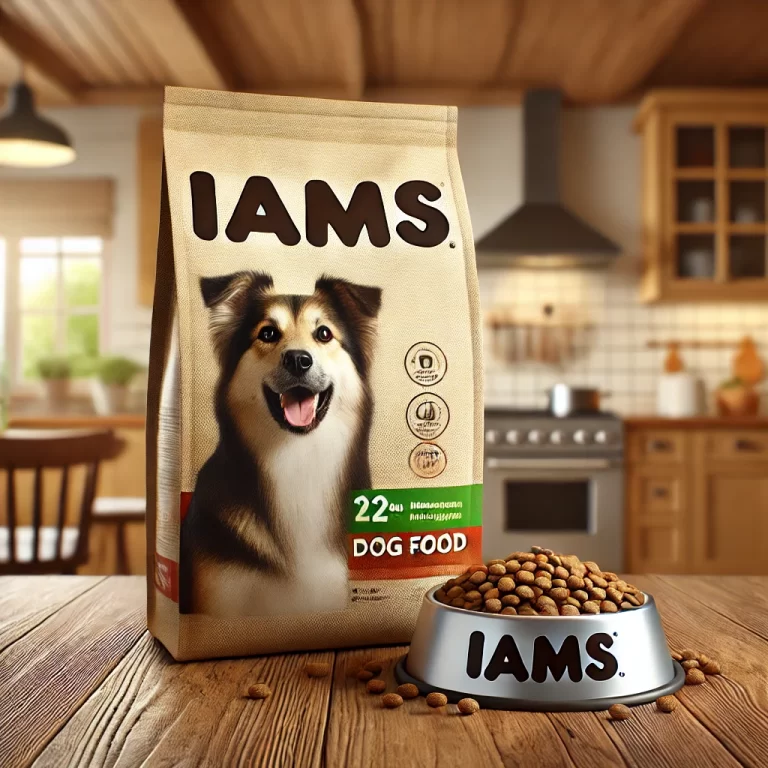What Foods Dogs Can and Cannot Eat? | Ultimate Pet Safety Guide
We all love to treat our dogs, but sharing food from our own plates can sometimes do more harm than good. While some human foods are perfectly safe and even nutritious for dogs, others can be toxic—even deadly. So, what foods can dogs eat, and what foods should they avoid?
This comprehensive guide covers both safe and dangerous foods for dogs, broken down into categories with vet-backed explanations. If you’ve ever wondered whether your dog can eat a certain fruit, vegetable, meat, or snack, you’ll find the answer here.
Table of Contents
- Safe Foods Dogs Can Eat
- Fruits Dogs Can Eat
- Vegetables Dogs Can Eat
- Meats & Proteins Dogs Can Eat
- Grains & Dairy: What’s Acceptable?
- Foods Dogs Cannot Eat (Toxic & Dangerous)
- Foods Dogs Can Eat In Moderation
- FAQ
Safe Foods Dogs Can Eat
Many human foods are perfectly safe for dogs when offered in moderation. These include:
- Cooked lean meats (chicken, turkey, beef)
- Plain white rice and pasta
- Some fruits and vegetables (detailed below)
- Eggs (cooked)
- Peanut butter (unsalted, xylitol-free)
- Pumpkin (plain, canned or cooked)
Even safe foods should be introduced gradually and given as treats—not staples of your dog’s diet.
Fruits Dogs Can Eat
Fruits are often rich in fiber, antioxidants, and vitamins. These fruits are safe for dogs:
| Fruit | Safe? | Notes |
|---|---|---|
| Apples | ✅ Yes | Remove seeds and core |
| Blueberries | ✅ Yes | High in antioxidants |
| Bananas | ✅ Yes | Moderate amounts due to sugar |
| Watermelon | ✅ Yes | No seeds or rind |
| Grapes | ❌ No | Toxic—can cause kidney failure |
| Cherries | ❌ No | Pits and stems are toxic |
Vegetables Dogs Can Eat
Dogs can benefit from the vitamins and fiber in certain vegetables:
- Carrots – Great for teeth, low-calorie snack
- Green beans – Rich in fiber, low in calories
- Broccoli – Safe in small amounts
- Sweet potatoes – Cooked only; avoid raw
- Cucumbers – Good for hydration and breath
Not safe: onions, garlic, chives, and leeks—these can cause serious blood cell damage in dogs.
Meats & Proteins Dogs Can Eat
Dogs thrive on protein. Here’s what’s safe:
- Chicken – Cooked, no bones or skin
- Turkey – Plain, lean cuts only
- Beef – Lean, cooked well
- Eggs – Cooked only, never raw
- Salmon – Cooked; rich in omega-3s
Never feed: raw meat or bones (risk of pathogens or choking), processed meats (like bacon or sausage), or seasoned meats with garlic/onion.

Grains & Dairy: What’s Acceptable?
Grains Dogs Can Eat:
- Rice (white or brown)
- Oatmeal
- Quinoa
- Plain bread (in moderation)
Dairy Products:
Some dogs are lactose intolerant. Those that tolerate dairy may enjoy:
- Plain yogurt (probiotic-rich)
- Small amounts of cheese (avoid moldy or high-fat types)
- Plain cottage cheese
Always monitor for signs of digestive upset after giving dairy.
Foods Dogs Cannot Eat (Toxic & Dangerous)
These foods are dangerous and should be kept away from your dog at all times:
- Grapes & raisins – Can cause kidney failure
- Chocolate – Contains theobromine; toxic to dogs
- Onions, garlic, leeks – Can damage red blood cells
- Xylitol – Found in sugar-free gum, peanut butter; causes insulin spikes
- Macadamia nuts – Toxic and cause muscle tremors
- Avocados – Contains persin; can cause vomiting/diarrhea
- Alcohol – Extremely dangerous even in small amounts
Foods Dogs Can Eat In Moderation
Some foods are safe in small amounts but not recommended for frequent consumption:
- Peanut butter – Must be xylitol-free; high in fat
- Cheese – High fat and calories; can cause digestive upset
- Bread – Non-toxic but not very nutritious
- Popcorn – Plain, air-popped only; no salt or butter
- Coconut – Safe in small amounts; high in fat
Use these as occasional treats, not daily snacks.
FAQ
Can dogs eat raw eggs?
No. Raw eggs pose a risk of salmonella and may interfere with biotin absorption. Always serve eggs fully cooked.
Is peanut butter safe for dogs?
Yes, if it’s unsweetened and xylitol-free. Avoid brands with artificial sweeteners or added salt.
Can dogs eat dairy products?
Some can tolerate small amounts of yogurt or cheese, but others are lactose intolerant. Introduce slowly and monitor for signs of upset stomach.
Are bones safe for dogs?
Cooked bones are dangerous as they can splinter. If offering bones, only give raw, vet-approved bones under supervision.
What should I do if my dog eats something toxic?
Contact your veterinarian or the ASPCA Animal Poison Control Center (888-426-4435) immediately. Provide information on what was eaten, how much, and when.
Conclusion
Understanding what foods dogs can and cannot eat is essential to being a responsible and loving pet owner. While it’s tempting to share your meals with your dog, not all human foods are safe—and some can be fatal.
Stick to vet-approved treats, consult with your veterinarian when introducing new foods, and always be cautious of hidden ingredients like xylitol or onions in packaged products. With this guide, you’ll be better equipped to make healthy choices for your canine companion.


